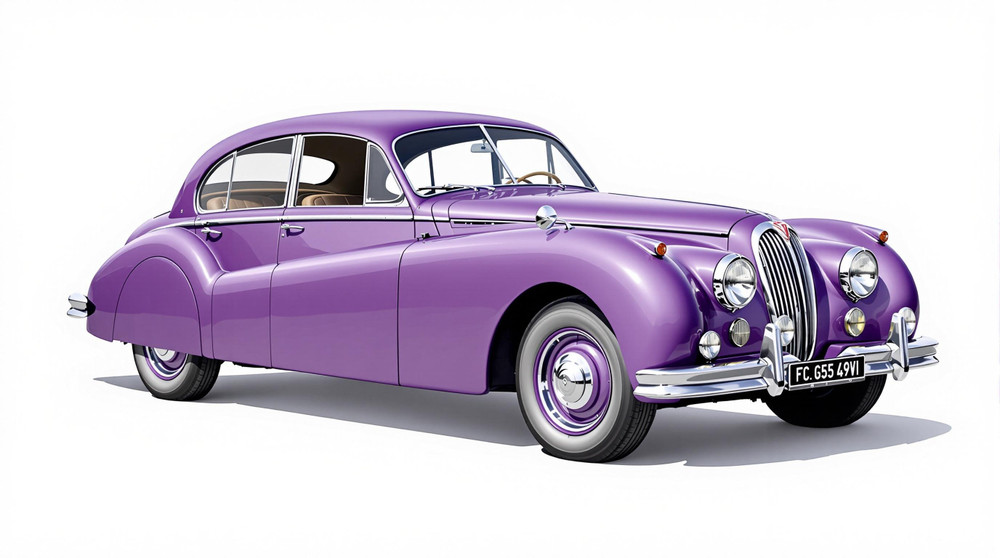Image of 1954 Jaguar Mark Vii, Note: These illustrations use artistic license and may differ from actual historical models.
Performance Metrics
Fundamental Metrics
Emotional Appeal
MMP Rating
| Engine Specifications | |
|---|---|
| Engine: | 3.4L XK I6 |
| Displacement: | 3442 cc |
| Horsepower: | 160-190 hp |
| Torque: | 195-210 lb-ft |
| Compression Ratio: | 8.0:1 |
| Ignition System: | Lucas ignition system |
| Cooling System: | Liquid-cooled |
| Performance Specifications | |
| 0-60 Time: | 13.7 seconds |
| 1/4 Mile Time: | Estimated at around 19 seconds |
| Top Speed: | 101 mph |
| Transmission and Drive | |
| Drive Type: | Rear-wheel drive |
| Transmission Type: | 4-speed manual |
| Fuel and Efficiency | |
| Fuel System Type: | Twin SU carburetors |
| MPG: | Estimated at around 15-18 mpg |
| Dimensions and Brakes | |
| Brakes: | Drum brakes |
| Wheelbase: | 120 inches |
| Weight: | 3650 lbs |
Note: Specifications for classic cars are given to the best of our ability, considering the limited and variant data available.
Introduction
The 1954 Jaguar Mark VII is a testament to the golden era of British motoring, a time when elegance and performance were intertwined in automotive design. Born from the storied lineage of Jaguar Cars Ltd, this luxury saloon was engineered to captivate both the driver and onlookers alike. Its historical significance is anchored in its role as a status symbol for the elite and as a competitive racer, with a unique claim to fame: it was the vehicle of choice for Queen Elizabeth II during her tour of Scotland in 1955.
Design and Innovation
With its sweeping curves and poised stance, the exterior of the Jaguar Mark VII is nothing short of an artistic sculpture on wheels. The car's imposing grille and elegant chrome accents exude a sense of grandeur that was unmatched at the time. Inside, passengers are enveloped in opulent leather and fine wood veneers, indicative of Jaguar's commitment to craftsmanship. Technologically advanced for its era, the Mark VII featured amenities such as a sunroof and a heater, which were considered luxuries at the time. Color options ranged from stately blacks and greys to rich maroons, with classic British Racing Green being a popular choice among enthusiasts. The saloon body style was iconic, offering both grace and practicality.
Historical Significance
The Jaguar Mark VII's influence on automotive design cannot be overstated. It set a new standard for luxury vehicles with its blend of performance and refinement. Its distinctive styling cues would echo through future generations of cars, marking it as a pioneer that shaped the aesthetic of post-war automobiles.
Performance and Handling
Underneath its polished exterior, the Mark VII boasted impressive performance credentials. Powered by a robust 3.4-liter inline-six engine, it could reach top speeds upwards of 100 mph—a remarkable feat at the time—with an acceleration from 0-60 mph in approximately 13 seconds. The car's handling was equally commendable; its independent front suspension ensured a smooth ride over uneven surfaces, while its weighty steering provided an authentic driving experience. Drivers often praised the symphony emitted by the engine, as well as the tactile feedback through the steering wheel and pedals.
Ownership Experience
The Mark VII was versatile enough to serve as an everyday car for the discerning gentleman or lady but also found its place at car shows or even amateur racing events. Maintenance is characteristic of classic cars; while reliability is generally good for well-kept examples, repairs can require specialized knowledge or parts sourcing. However, many owners find joy in the hands-on relationship with their vehicle.
Fun Facts
This grand tourer has graced many collections and has been associated with celebrities and royalty alike. While not known for breaking speed records, it did break social barriers by bringing high-end features to a more accessible price point. Criticisms were few but often pointed towards its fuel consumption—a small price to pay for such luxury.
Collector's Information
In today's market, a well-preserved 1954 Jaguar Mark VII can fetch anywhere from $20,000 to $60,000 depending on condition and provenance. Approximately 30,000 units were produced during its entire production run from 1951 to 1956, making it relatively rare but still accessible to serious collectors. As with many classic cars, values have been appreciating steadily over time.
Conclusion
The 1954 Jaguar Mark VII remains an icon of automotive history—a blend of British elegance and performance that continues to turn heads decades after it first hit the road. Its legacy endures not only in classic car circles but also in how it influenced designs that followed. For those who have had the pleasure of owning or driving one, it represents an era when cars were more than just transportation; they were moving works of art.
1954 Jaguar Mark Vii Catalog of Parts
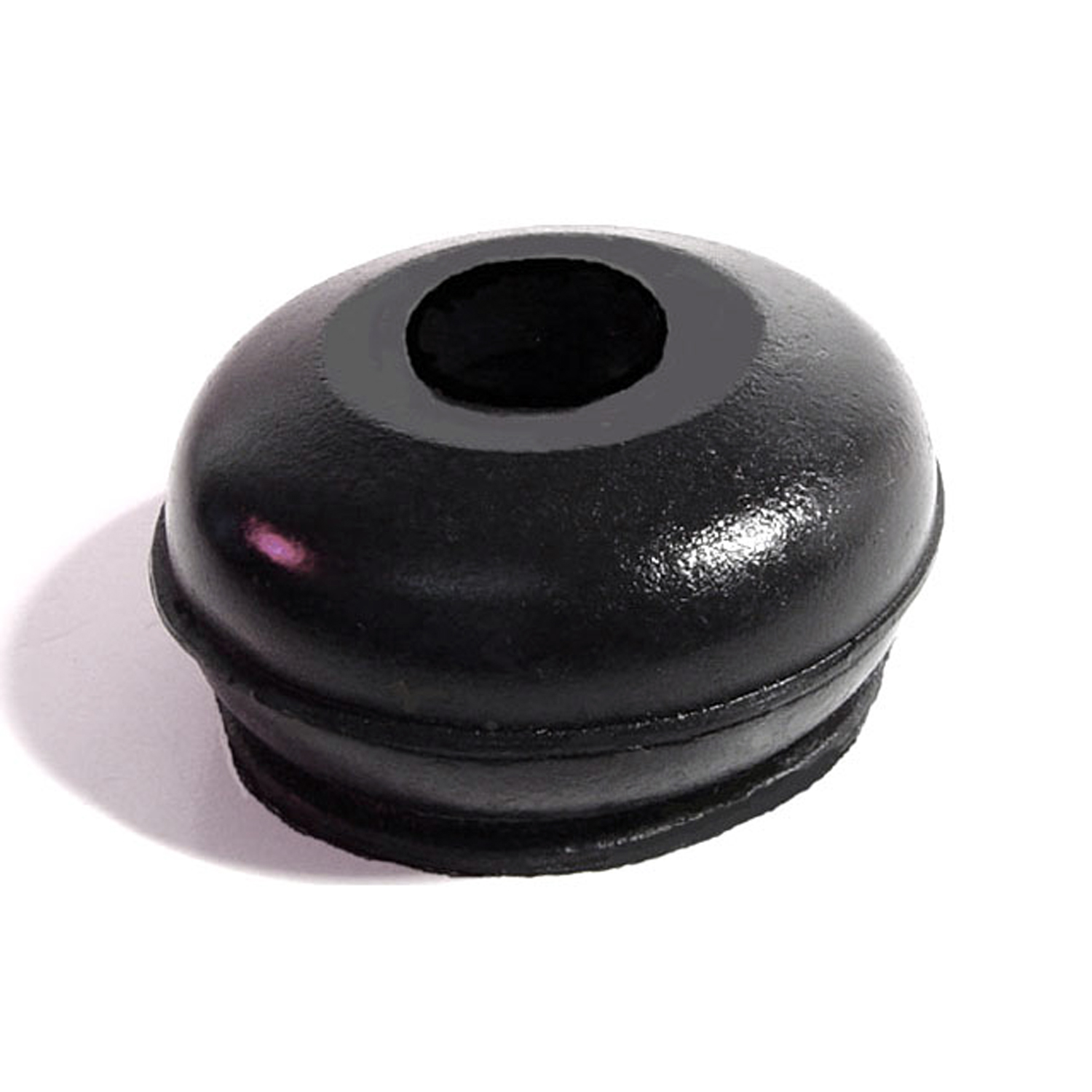 1954 Jaguar Mark VII Upper and Lower Ball Joint Boot. 5/8" upper I.D-BN 101-AUpper and Lower Ball Joint Boot. 5/8" upper I.D., 1-1/2" bottom I.D., 7/8" high. Each
1954 Jaguar Mark VII Upper and Lower Ball Joint Boot. 5/8" upper I.D-BN 101-AUpper and Lower Ball Joint Boot. 5/8" upper I.D., 1-1/2" bottom I.D., 7/8" high. Each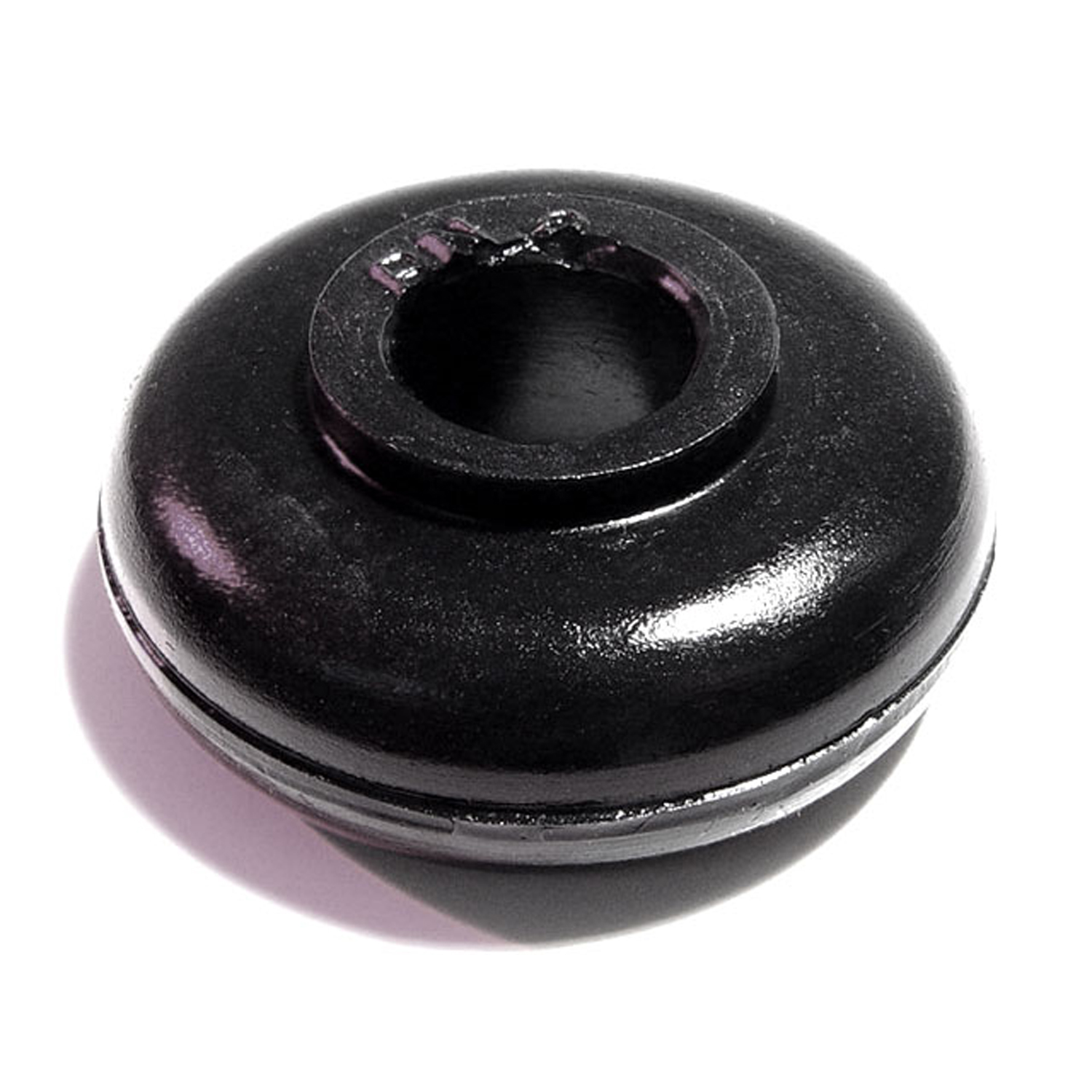 1954 Jaguar Mark VII Roll Bar Bushing. 1/2" high, with 1/2" hole. Each-BN 2Roll Bar Bushing. 1/2" high, with 1/2" hole. Each
1954 Jaguar Mark VII Roll Bar Bushing. 1/2" high, with 1/2" hole. Each-BN 2Roll Bar Bushing. 1/2" high, with 1/2" hole. Each 1954 Jaguar Mark VII Auto Brake Pedal Pad. 3-1/4" wide X 5-1/2" long. Each-CB 75-BAuto Brake Pedal Pad. 3-1/4" wide X 5-1/2" long. Each
1954 Jaguar Mark VII Auto Brake Pedal Pad. 3-1/4" wide X 5-1/2" long. Each-CB 75-BAuto Brake Pedal Pad. 3-1/4" wide X 5-1/2" long. Each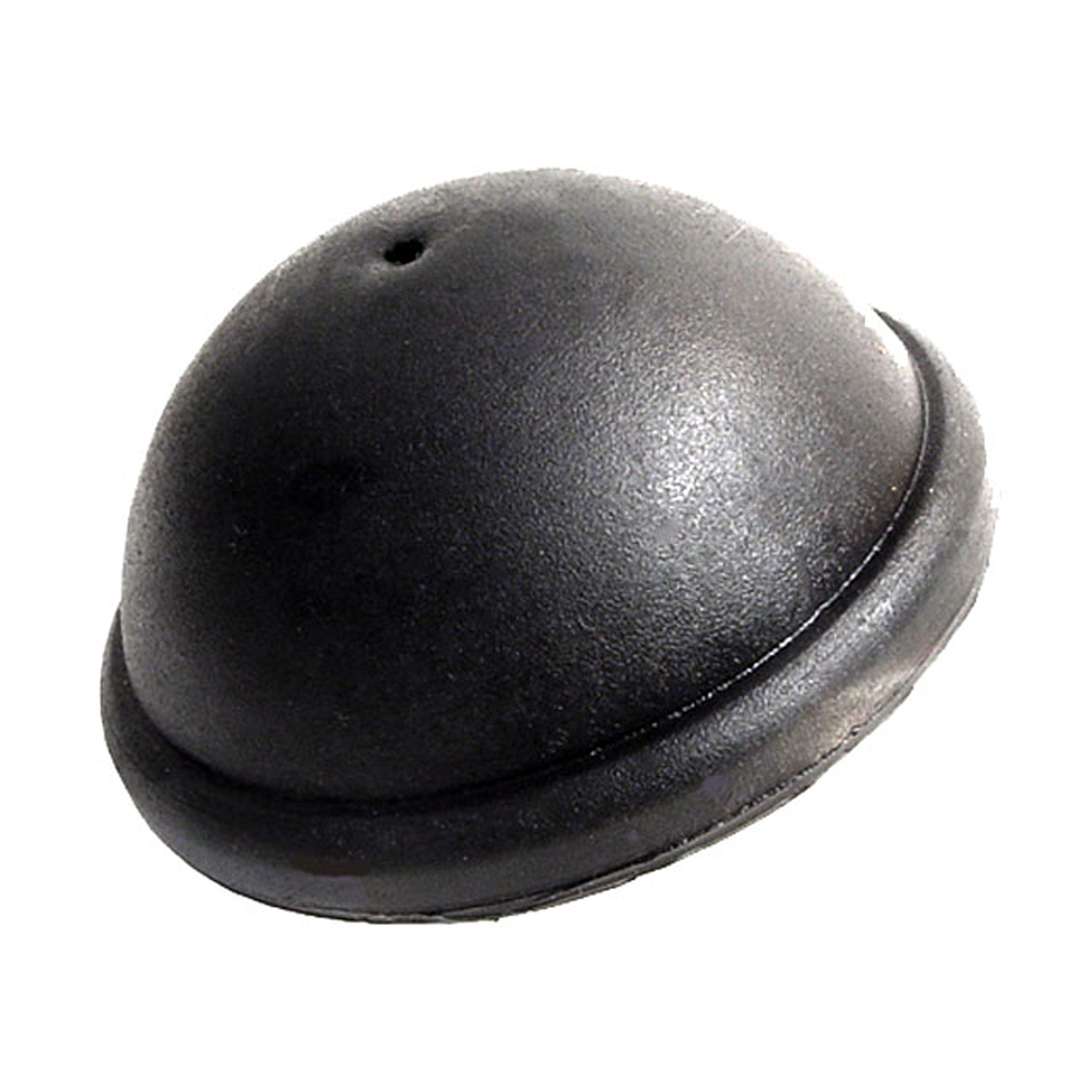 1954 Jaguar Mark VII Gas Tank Filler Cap Seal. Fits on washer. Dome shaped-GF 51Gas Tank Filler Cap Seal. Fits on washer. Dome shaped. 1-3/4" I.D., 2-1/2" O.D. Each
1954 Jaguar Mark VII Gas Tank Filler Cap Seal. Fits on washer. Dome shaped-GF 51Gas Tank Filler Cap Seal. Fits on washer. Dome shaped. 1-3/4" I.D., 2-1/2" O.D. Each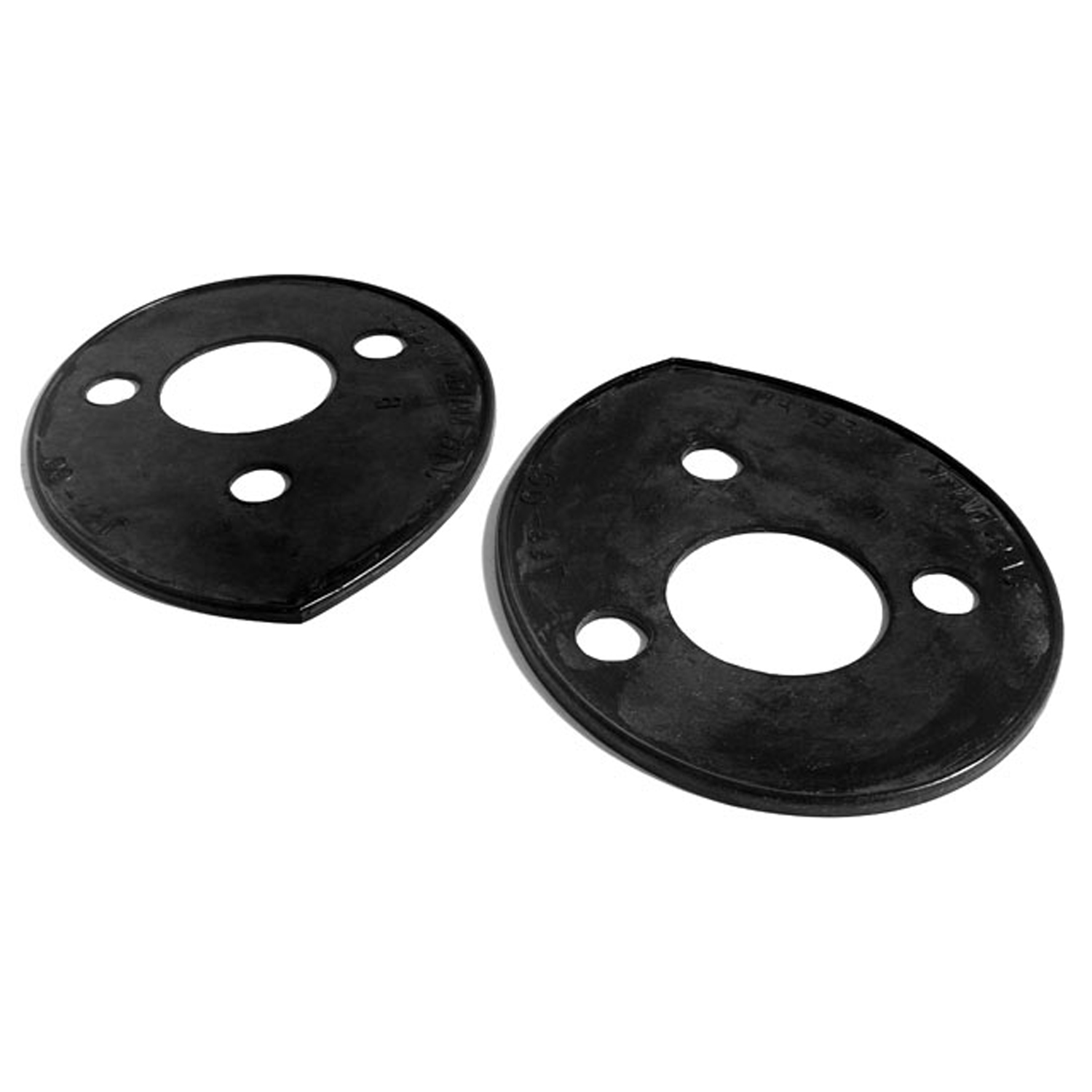 1954 Jaguar Mark VII Tail-light Pads. 4" wide X 5" long. Pair R&L-MP 799-QQTail-light Pads. 4" wide X 5" long. Pair R&L
1954 Jaguar Mark VII Tail-light Pads. 4" wide X 5" long. Pair R&L-MP 799-QQTail-light Pads. 4" wide X 5" long. Pair R&L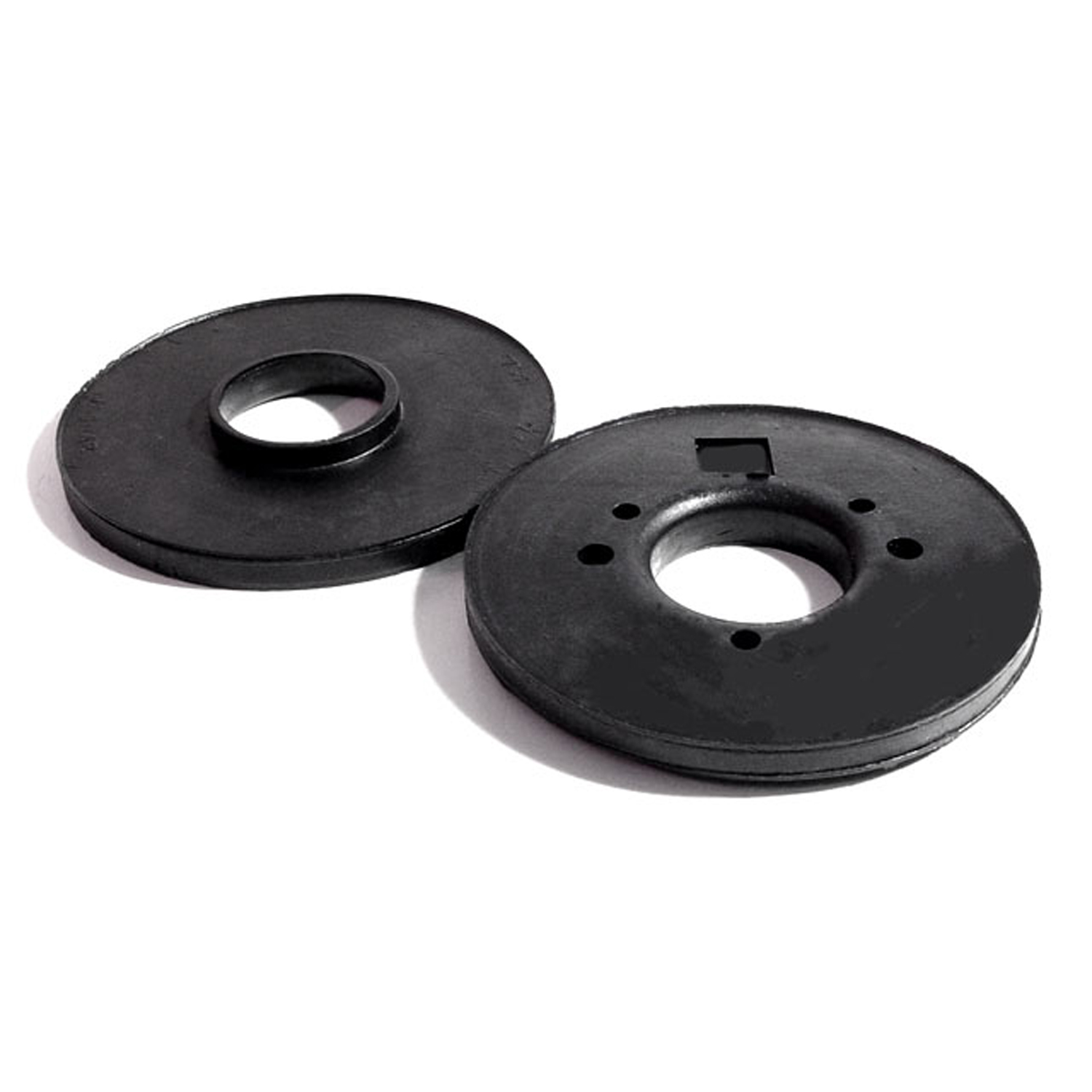 1954 Jaguar Mark VII Turn Signal Pads. Exact reproduction. 3-1/4" O.D. Pair-MP 799-ZZTurn Signal Pads. Exact reproduction. 3-1/4" O.D. Pair
1954 Jaguar Mark VII Turn Signal Pads. Exact reproduction. 3-1/4" O.D. Pair-MP 799-ZZTurn Signal Pads. Exact reproduction. 3-1/4" O.D. Pair 1954 Jaguar Mark VII Spark plug wire boot. Exclusive Metro part-RP 1-KSpark plug wire boot. Exclusive Metro part. Fits on the distributor cap end. Note: looks similar to coil boot, but is physically smaller. Replaces OEM# CO 2609. Each.
1954 Jaguar Mark VII Spark plug wire boot. Exclusive Metro part-RP 1-KSpark plug wire boot. Exclusive Metro part. Fits on the distributor cap end. Note: looks similar to coil boot, but is physically smaller. Replaces OEM# CO 2609. Each.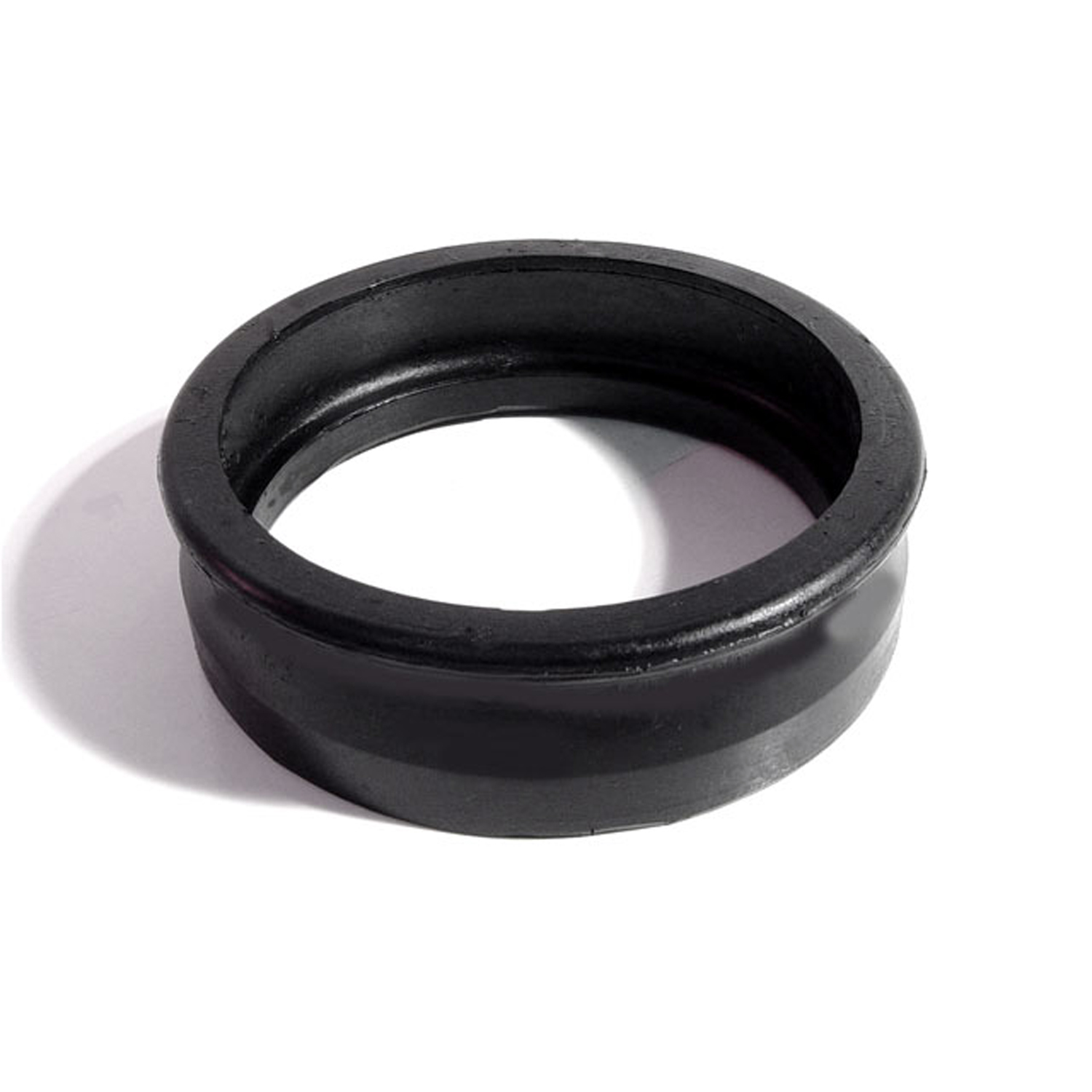 1954 Jaguar Mark VII Air Cleaner Grommet. Made of rubber. 2-7/8" I.D., 3-1/2" O-RP 300Air Cleaner Grommet. Made of rubber. 2-7/8" I.D., 3-1/2" O.D. Each
1954 Jaguar Mark VII Air Cleaner Grommet. Made of rubber. 2-7/8" I.D., 3-1/2" O-RP 300Air Cleaner Grommet. Made of rubber. 2-7/8" I.D., 3-1/2" O.D. Each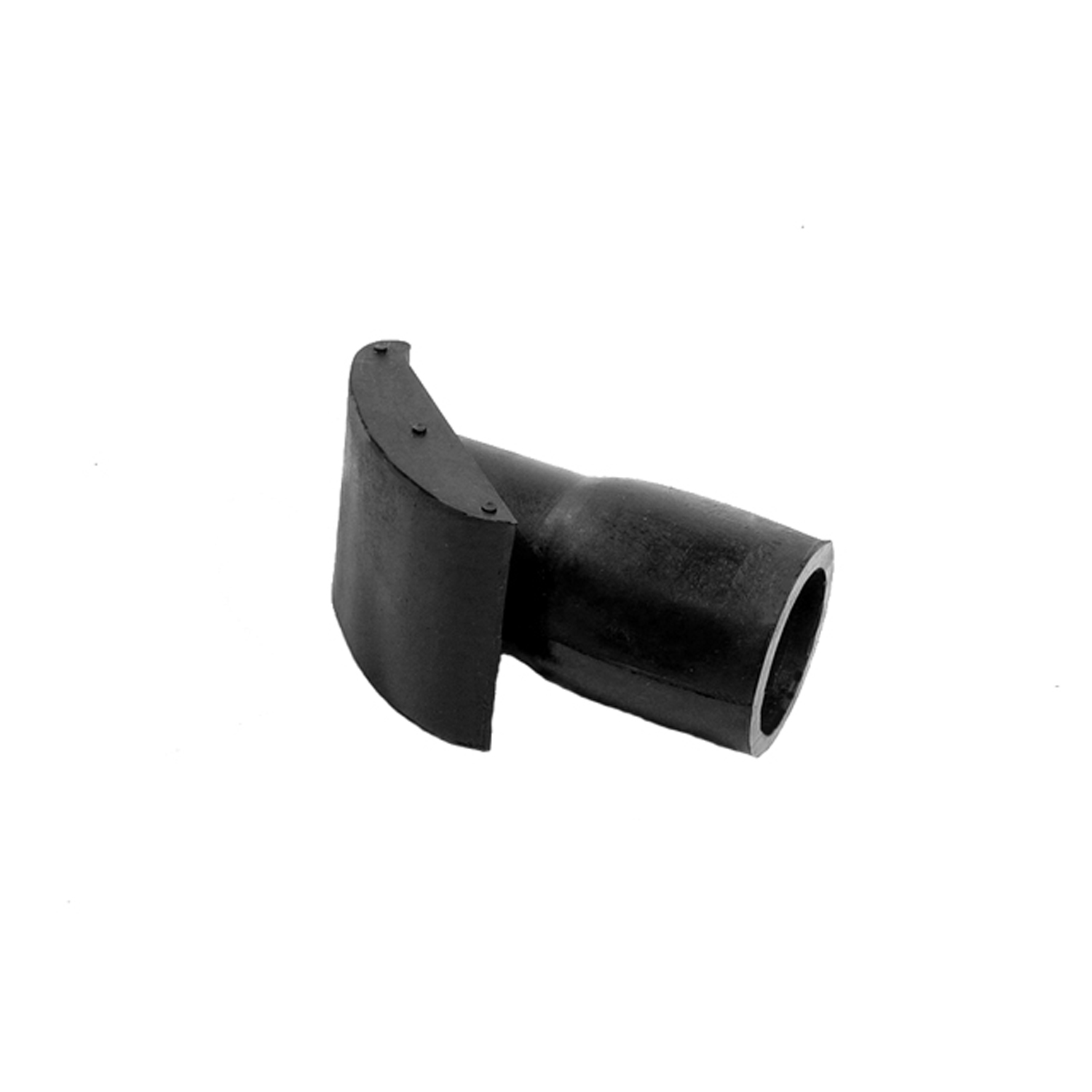 1954 Jaguar Mark VII Jack Socket Plug. Up to 4 used per car. 1" I.D-RP 90-CJack Socket Plug. Up to 4 used per car. 1" I.D., 3" total length. Each
1954 Jaguar Mark VII Jack Socket Plug. Up to 4 used per car. 1" I.D-RP 90-CJack Socket Plug. Up to 4 used per car. 1" I.D., 3" total length. EachWhy Choose Metro?
For over 100 years, Metro Moulded Parts has been the pinnacle of quality in classic car restoration parts. Our commitment to precision and authenticity in every component ensures a perfect fit and an OEM-level appearance.
- Expert Craftsmanship & Quality: Each part is a testament to our dedication to reliability and perfection, crafted from original designs and thoroughly tested.
- Advanced Technology: We use cutting-edge techniques to create flawless, long-lasting parts that surpass others in performance.
- SuperSoft Sponge – The Ultimate Door Seal: Not only are our door seals 30% softer than competitors', but they're also guaranteed to never leak. They effectively reduce wind and road noise, enhancing your classic car's comfort and driving experience.
- Proudly American: Our parts are a product of American craftsmanship, made in the USA with a spirit of excellence and heritage.
- Unrivaled Warranty: We back our products with a 30-year industry-leading warranty, a testament to our confidence in their quality.
Join us in preserving the legacy of classic cars with parts that are crafted for perfection, not just made.

